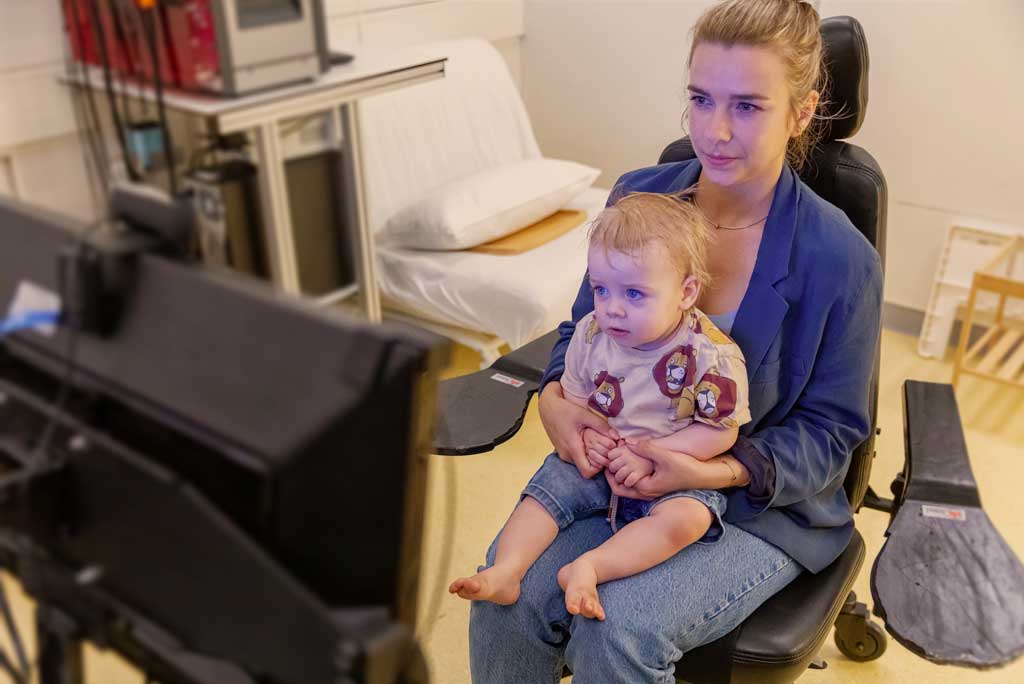Attention can be measured by observing babies' and children's eye movements. When a child sees something new or surprising, he or she will look at it. By studying their eye movements we can infer what the child knows or does not know.
Eyetracker
The equipment we use for measuring eye movements (the Tobii Eyetracker) consists of a computer screen with a built-in camera that takes pictures of your child’s eyes. Your child will sit on your lap and watch a short movie on the computer screen. While your child is watching the movie, we record his or her eye movements and later investigate whether and how he or she followed what happened on the screen and which aspects he or she paid most attention to.

Dilated pupils
We can also measure the size of pupils with an Eyetracker. Pupil dilation interests us because it reflects certain cognitive processes. When someone is surprised or interested, the pupil dilates!
For example, we repeatedly show a baby a sequence of objects and then suddenly change the sequence. From the pupil size we can infer whether the baby is surprised by this sudden change. If that's the case, this means the baby discovered and thus learned the original sequence!